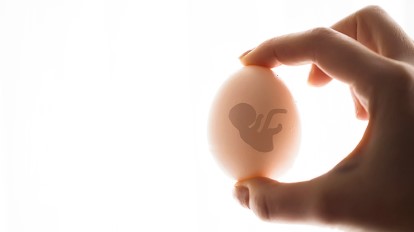A concerning trend has emerged across Nigerian university campuses, particularly at the University of Ibadan, where female students are increasingly turning to egg donation as a means of financing their education. This practice, while not new in Nigeria, has become so prevalent that it prompted the University of Ibadan’s Health Services Director, Dr. Aderonke Ajayi, to issue an internal memorandum warning students about potential health risks.
Economic Pressures Driving the Trend
The Education Rights Campaign (ERC) at the University of Ibadan has identified a clear link between this troubling trend and the harsh economic realities facing students. According to their report, the university increased school fees by a staggering 453% to 750% during the 2022/2023 academic session, with fees jumping from approximately N64,600-N69,600 to between N230,000 and N412,000. For the 2023/2024 session, there are indications of further increases, potentially exceeding 200% for returning students.
“The increasing reliance on egg donation by female students at the University of Ibadan and other universities to survive and fund their education is a clear indication of the desperation and hardship faced by Nigerian students,” the ERC stated. They emphasize that this is “not a personal choice, but a last resort to survive the crushing financial burden of tertiary education.”
The rise in egg donation coincides with a dramatic expansion of Nigeria’s fertility industry. In 2021, the country had 23 registered private fertility clinics listed in the directory of the Associations of Fertility and Reproductive Health (AFRH). By April 2024, that number had skyrocketed to 87 registered facilities.
This growth responds to increasing infertility rates in Nigeria, with studies showing prevalence rates between 10-30% among couples. Fertility specialist Dr. Jean Nassar attributes this rise to various factors: “Women delaying childbearing to pursue education and careers, environmental factors like pollution, and lifestyle issues including poor diet, smoking, obesity, and excessive alcohol consumption.”
Fertility clinics typically offer between N80,000 ($195) and N150,000 ($365) per cycle of egg donation, according to a 2021 Al Jazeera report. For students struggling to pay fees that can exceed N400,000, these payments serve as a financial lifeline.
Dr. Gbolahan Obajimi, a reader in Obstetrics and Gynaecology at the University of Ibadan’s College of Medicine, explains that there are two types of egg donors: “Altruistic donors are generally compensated minimally for their time and transportation. This is common in Europe. However, in America and most of Asia and Africa, commercial donation is the favoured practice. Donors are largely rewarded, and in certain instances, they can name their price.”
Health Implications
The University of Ibadan’s memo highlighted several health concerns associated with egg donation, including both short-term and potential long-term effects:
Short-term risks include:
- Abdominal pain
- Breast tenderness
- Bloating
- Mood swings
- Ovarian Hyperstimulation Syndrome (OHSS)
- Infection and bleeding
- Ovarian torsion
- Potential injury to the bladder, blood vessels, and bowel
- Psychological distress
Long-term concerns include potential fertility loss, though Dr. Obajimi contends that “egg donation is quite safe” when properly managed. He notes that “well-spaced donations generally have no negative health implications” but identifies ovarian hyperstimulation syndrome as a potential danger, though “quite rare and often self-limiting with supportive care.”
The university’s advisory recommends limiting donations to no more than three times per year and choosing reputable clinics that prioritise donor safety. It also notes that current research remains “inconclusive regarding who is medically safe to donate, how many times donation can safely occur, and the ideal interval between donations.”
Ethical and Social Considerations
The practice raises complex ethical questions in Nigeria’s cultural context. Research by Nneka Ihuoma Okafor and colleagues describes egg donation as “a sensitive topic in Nigeria,” with donors often keeping their participation secret due to “fear of identification, perceived stigmatization and being labelled an aberration to the generally accepted culture on procreation.”
Social media reactions reflect diverse perspectives. Some, like Philip Okpala, express religious and moral objections, arguing that egg donation represents “a profound disruption of the natural, moral, and social order.” Others question why universities aren’t addressing the root economic problems forcing students to consider egg donation in the first place.
Dr. Obajimi dismisses concerns that egg donation constitutes organ harvesting: “Not at all. No organ is harvested. It is a process of collecting eggs that will ordinarily be destroyed by the body.”
Calls for Action
The ERC strongly condemns the conditions forcing students into egg donation and urges students to mobilise against fee hikes. They propose that resistance at the University of Ibadan should catalyse “a nationwide movement against anti-people policies like the commercialisation of education.”
“It is unacceptable that students are forced to resort to such extreme measures to access education in a country that is abundantly rich in both human and natural resources,” the ERC stated. “Free and quality education is a fundamental right, not a privilege.”
The organisation calls for increased government funding for public education under democratic control, arguing that the current commercialisation of education threatens “the well-being and future of Nigerian students.”
As this trend continues to evolve, key stakeholders must balance multiple concerns: the legitimate needs of infertile couples, the financial pressures driving students to donate eggs, and the potential health risks involved. While egg donation provides hope for families struggling with infertility and financial support for students in need, questions remain about whether enough protections exist for young donors who may not fully comprehend the long-term implications of their decisions.
What’s clear is that the rise in egg donation among female students reflects broader systemic issues in Nigeria’s educational system and economy—issues that may require more comprehensive solutions than medical warnings alone can provide.





















